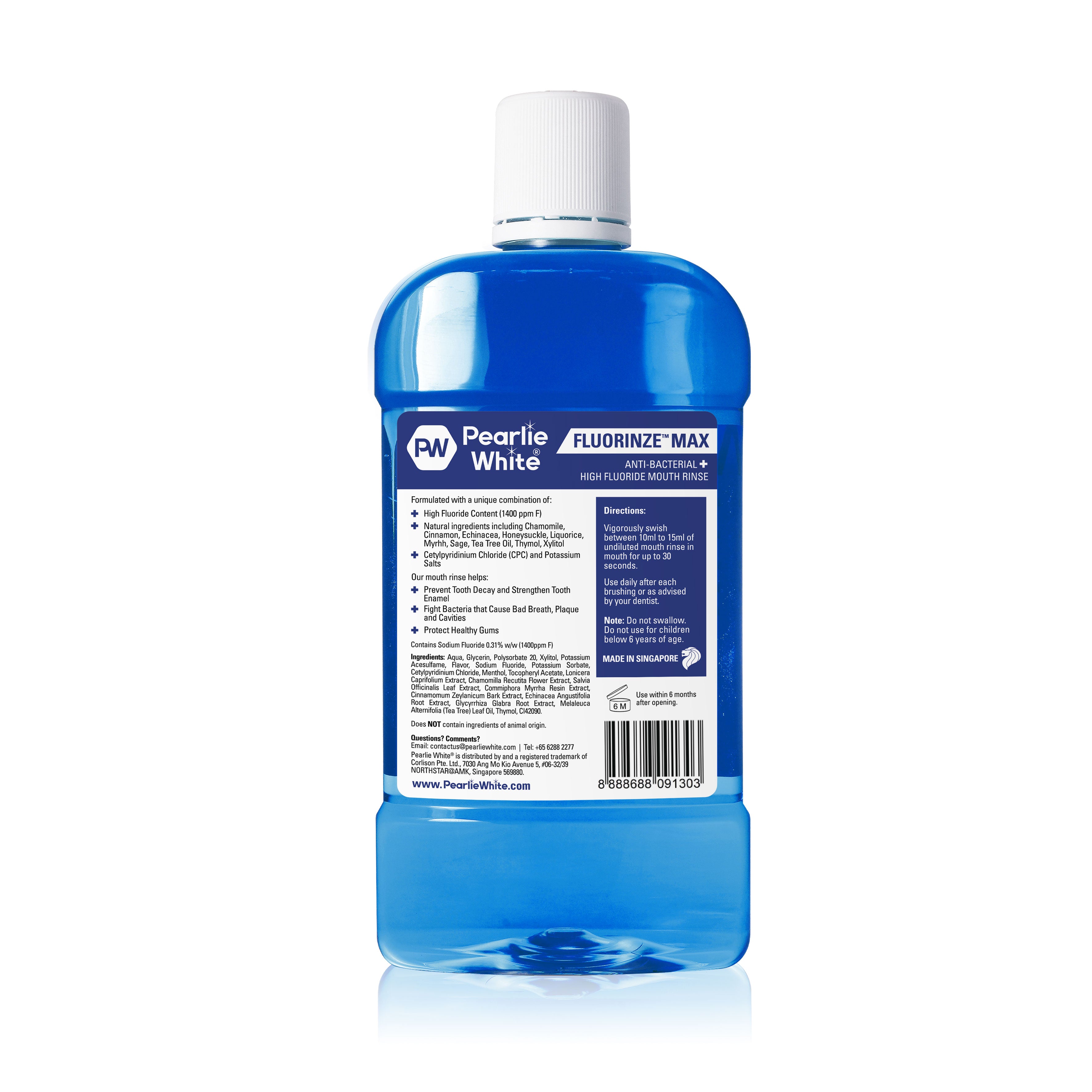High Fluoride Mouth Rinse

The use of high fluoride mouth rinses has been a topic of interest in the field of dentistry for several decades. As a preventive measure against tooth decay and other oral health issues, fluoride has been widely recognized for its effectiveness. However, the application of high fluoride mouth rinses, in particular, requires a nuanced understanding of their benefits, potential risks, and appropriate usage guidelines.
Historically, the introduction of fluoride in dental care marked a significant milestone in the prevention of dental caries. From community water fluoridation to the use of fluoride toothpaste and mouthwashes, various methods have been employed to harness the cavity-fighting properties of fluoride. High fluoride mouth rinses, with their concentrated formulas, are designed to provide an intensified dose of fluoride, typically for individuals at high risk of tooth decay or with specific oral health needs.
Benefits of High Fluoride Mouth Rinses
- Enhanced Cavity Protection: High fluoride mouth rinses offer enhanced protection against tooth decay by creating a barrier on the tooth surface that makes teeth more resistant to acid attacks from plaque bacteria and sugars in the mouth.
- Prevention of Tooth Erosion: Fluoride helps in the remineralization of tooth enamel, which can be eroded due to acid reflux, eating disorders, or the consumption of acidic foods and beverages.
- Sensitivity Reduction: For individuals suffering from tooth sensitivity, high fluoride mouth rinses can help in reducing this discomfort by blocking the dentinal tubules in the teeth.
- Gingivitis Prevention: While the primary action of fluoride is on teeth, its use can indirectly support gum health by reducing the bacterial load and acidity that can lead to gingivitis.
Potential Risks and Considerations
Despite the benefits, the use of high fluoride mouth rinses is not without potential risks, especially if not used as directed:
- Fluorosis: Excessive fluoride consumption, particularly in children during the formation of teeth, can lead to dental fluorosis, characterized by white or brown spots on the teeth.
- Overuse: Using high fluoride mouth rinses too frequently or in excessive amounts can lead to an overload of fluoride in the body, potentially causing systemic side effects, although this is rare.
- Interaction with Other Substances: Fluoride can interact with certain minerals or substances, such as calcium, magnesium, or aluminum, potentially reducing its effectiveness or leading to other health issues.
Usage Guidelines
To safely and effectively use high fluoride mouth rinses, the following guidelines should be considered:
- Prescription and Supervision: High fluoride mouth rinses are often available by prescription only, reflecting the need for their use to be supervised by a dental health professional, especially in children or individuals with specific health conditions.
- Dosage and Frequency: Adhere strictly to the recommended dosage and frequency of use. This typically involves rinsing the mouth with the solution for a specified duration (often 1-2 minutes) and then spitting it out.
- Not for Children Under 6 Years: Due to the risk of fluorosis, high fluoride mouth rinses are generally not recommended for children under the age of 6 unless specifically advised by a dentist.
- Swallowing: Instructions usually advise against swallowing the rinse, as this can lead to excessive fluoride ingestion.
Alternatives and Complementary Measures
For individuals who cannot use high fluoride mouth rinses or prefer alternative preventive measures, several options are available:
- Regular Fluoride Toothpaste and Mouthwashes: These provide a lower but still effective dose of fluoride for everyday use.
- Dietary Changes: Reducing sugar intake, increasing the consumption of calcium-rich foods, and avoiding acidic beverages can help in preventing tooth decay and erosion.
- Regular Dental Check-Ups: Regular visits to the dentist for cleanings, check-ups, and personalized advice on oral hygiene can significantly contribute to maintaining good oral health.
Conclusion
High fluoride mouth rinses represent a valuable tool in the prevention of tooth decay and the promotion of oral health, particularly for individuals at high risk. However, their use must be approached with an understanding of their potential benefits and risks, alongside adherence to recommended guidelines and professional advice. As with any health-related intervention, a balanced and informed approach is key to maximizing the advantages of high fluoride mouth rinses while minimizing potential drawbacks.
Who should use high fluoride mouth rinses?
+High fluoride mouth rinses are recommended for individuals at high risk of tooth decay, such as those with a history of frequent cavities, poor oral hygiene, or other specific oral health conditions. Their use should be under the supervision of a dental health professional.
How often can I use a high fluoride mouth rinse?
+The frequency of using a high fluoride mouth rinse depends on the product's instructions and the advice of your dentist. Generally, it is used once daily, but this can vary based on individual needs and risk factors.
Can children use high fluoride mouth rinses?
+Children under the age of 6 should not use high fluoride mouth rinses due to the risk of fluorosis. For children aged 6 and above, the use of these rinses should be determined by a dentist based on the child's oral health needs and risk of tooth decay.
As dental care continues to evolve, the role of high fluoride mouth rinses in preventive dentistry remains significant. By understanding their proper use, benefits, and potential risks, individuals can make informed decisions about their oral health care, in consultation with dental professionals.



